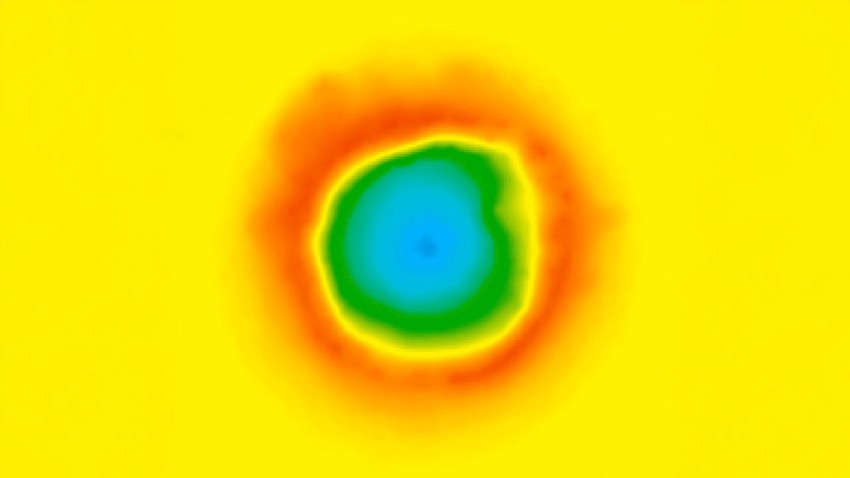Imagine. Design. Create.
Real innovation comes from the marriage of deep technical knowledge with creative imagination. Our programs nurture both the mind and the imagination. We accelerate discovery to make impactful and lasting changes, and we foster engineering leaders and entrepreneurs who will go on to solve the world’s biggest problems.
News Highlights
-

‘Embodied energy’ powers modular worm, jellyfish robots
In the same way that terrestrial life evolved from ocean swimmers to land walkers, soft robots are progressing, too, thanks to recent Cornell research in battery development and design.
-

Nanoscale tweaks help alloy withstand high-speed impacts
A Cornell-led collaboration devised a new method for designing metals and alloys that can withstand extreme impacts: introducing nanometer-scale speed bumps that suppress a fundamental transition that controls how metallic materials deform.
-

Sibley School forum unites academia, renewable energy industry
More than 200 industry professionals, faculty, students and thought leaders gathered in Cornell’s Upson Hall on March 6 for a day-long forum exploring challenges in renewable energy development.
-

Joseph Burns, emeritus professor, former dean of faculty, dies at 83
Joseph A. Burns, Ph.D. ’66, emeritus professor of engineering and astronomy, and a former vice provost and dean of the Cornell faculty, died Feb. 26 in Ithaca.
Our Degree Programs
-
Mechanical Engineering
Involves the design and analysis of machines, engines, and systems. Perfect for those fascinated by motion, energy, and innovative mechanical solutions.
-
Aerospace Engineering
Involves designing and testing aircraft and spacecraft. It’s ideal for those excited by flight, space exploration, and advancing technologies in propulsion and aerodynamics.
-
Applied Mathematics
Uses math to solve real-world problems in science and engineering. Ideal for those who enjoy mathematical modeling and want to apply theory to practical issues.
-
Theoretical and Applied Mechanics
Explores the principles of motion and forces in engineering systems. Great for those who want to innovate in fields like aerospace, robotics, or structural design.
Strategic Research Areas
-
![yellow material stretching between a base and an instrument.]()
Advanced Manufacturing and Materials
Material design through understanding how nano, micro, and/or mesoscale mechanisms result in macroscale properties.
-
![Two students in white lab coats and protective goggles examine a piece of equipment in the Hernandez lab]()
Biomechanics and Mechanobiology
Investigating the role of mechanical forces in physiological and disease processes.
-
![person holding a smartphone with a blood-testing device attached]()
Bioengineering and Healthcare
Technology research translated to biomedical applications, such as early cancer detection, immunology treatments, and global and mobile health.
-
![wind turbines against a sunset sky]()
Energy and Sustainability
Developing new energy sources and technologies that benefit the environment and economy, and helping to implement those technologies.
-
![three black spiral robotic parts held in a hand]()
Robotics and Autonomy
Robotics at Cornell spans various subareas, including perception, control, learning, planning, and human-robot interaction.
-
![close-up of a hand holding a yellow and black chipsat.]()
Space Science and Engineering
Satellite systems design, space “weather”, solar geo-engineering, space-system design, cubesats, optical and radar satellites for remote sensing, and methods and tools for the detection of extrasolar planets.
Upcoming Events
-
![]()
MAE Colloquium: Pietro Elia Campana (Mälardalen)
Exploring Dual Land Use for Agriculture and Solar Power Production: Are Agrivoltaic Systems Viable in Sweden? In this presentation, he will explore the concept of agrivoltaic systems and discuss their…
-
![]()
Engineering Undergraduate Research Poster Session
The Office of Inclusive Excellence is sponsoring its annual Engineering Undergraduate Research Poster Session in Duffield Atrium. This event will feature the work of students who received Cornell Engi…







